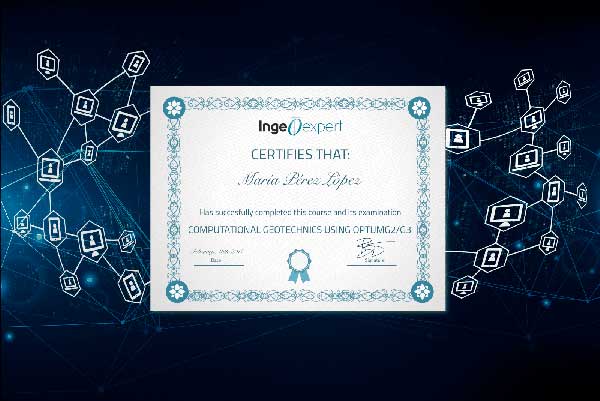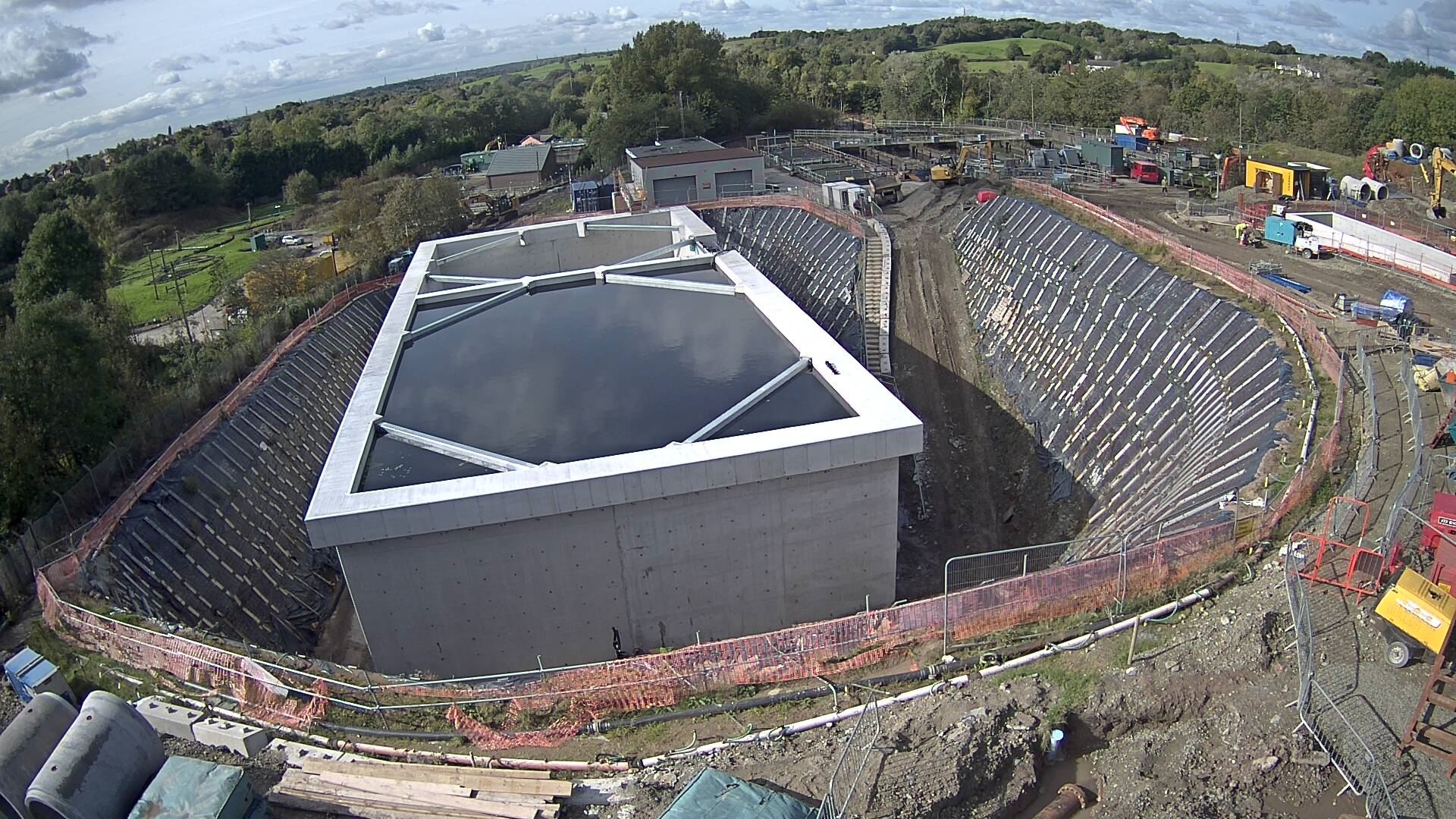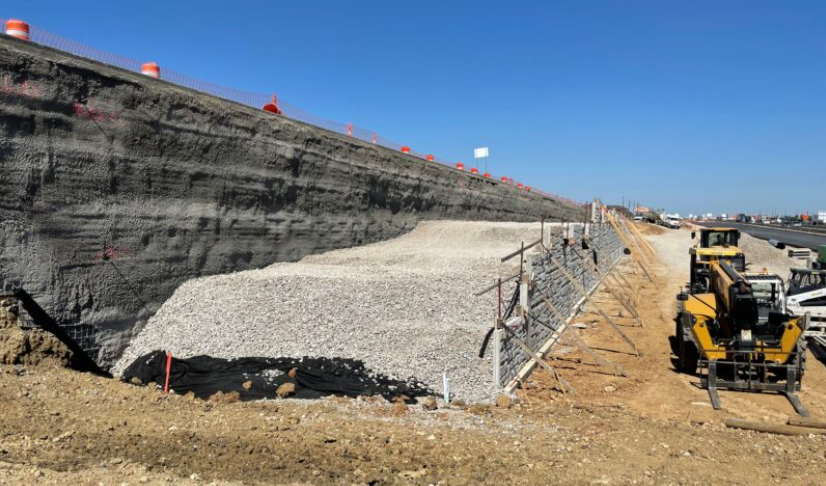An introduction to sustainability for engineers
Online course |
|
20 hours / 2 weeks |
|
|
Dates: 27th of May to 10th of June |
| Standard | Unemployed Or Student |
| $194 | $130 |
Introduction
Climate change is the single biggest threat that we are facing. The demands of our societies for infrastructure must be delivered in a more sustainable way. There is a great interest among private and public clients in using new innovative solutions and construction material choices in order to build more sustainable infrastructure. To maintain the competitiveness in the construction industry, these ambitions must be broken down from the level of government policy to practical, tangible guidance for civil engineering projects. Then we can contribute in a meaningful way at all stages of a project.
At the moment, there is a lack of awareness and understanding amongst engineers of the key concepts of sustainability and how to make our projects better. This course cuts through the jargon to explain in simple terms what the construction industry needs to do and how we can meet the challenge. Engineers need to present information to enable project stakeholders to understand the inter-relationship (over the whole project life) between financial costs, time and design quality and the wider environmental impact (especially energy performance and CO2 emissions). The comparison of alternative materials and design solutions based on technical and functional characteristics as well as sustainability performance aspects, in the whole life-cycle perspective, will become a vital part of an engineer’s daily work.
Objectives
From this 2 week introductory course, you will gain an understanding of:
- The key terms and concepts in the field of sustainability
- The background to clients’ sustainability and climate requirements in the infrastructure projects
- How are sustainability requirements handled in different project stages and by different stakeholders
- Know-how to identify and implement some most cost-efficient climate-reducing measures
- How to perform carbon footprint calculations
This course will guide you through the most widely international standards and tools (such as Environmental Product Declarations) in order to get insights into the sustainability assessment of infrastructure projects based on several aspects: technical, environmental and economic performance.
Each subject will be illustrated with easy to understand examples and practical cases. This will bring the subject to life in a way that normal textbooks cannot. This course will be delivered by two highly experienced lecturers who will share the knowledge that they have gathered over a combined experience of more than 50 years.
Limited places.
MODULE 1. Concept of sustainability
- – What is sustainability?
- – The role of an engineer in sustainability
- – Trends in civil engineering
- *Sustainability reporting
- *Environmental rating schemes
- *International standards
- – Methods for assessment of sustainability
- *Environmental performance
- *Environmental Product Declaration (EPD)
- *Carbon footprint calculation
- *Social performance
- *Economic performance
MODULE 2. Sustainability of infrastructure projects
- – Clients’ sustainability requirements
- – Carbon footprint calculations for infrastructure projects
- – Climate impact mitigation measures
- – Low carbon design
- – Low carbon materials & construction methods
Dr Alun Thomas
- – Alun approaches sustainability from the position of an experienced civil engineer. He has a broad expertise of many types of tunnelling methods from immersed tubes to segmental linings. With a reputation for innovation, he has been involved in promoting sustainability in tunnelling, for example, through the use of permanent sprayed concrete, fibre reinforcement and spray-applied waterproof membranes. Since graduating from Cambridge University, over the last 25 years, he has been involved in many of the recent major UK tunnelling projects such as the Heathrow Terminal 5, Crossrail and the Lower Thames Crossing, as well as working on design and construction of tunnels internationally. He is currently working as the Carbon Manager for the Copenhagen Metro.
- – Alun has given lectures at the British Tunnelling Society course, Leeds University, the Budapest Technical University and the Danish Technical University. He has a course on Ingeoexpert on Soft ground tunnelling. A regular contributor to magazines and conferences with more than 50 publications, he has written articles on subjects ranging from the role of innovation in sustainability to low carbon options for rock bolts. A second edition of his book, “Sprayed concrete lined tunnels”, was recently published in addition to the Chinese and Turkish versions of the first edition. Alun is a member of the ITA’s Working Group Sustainability and also Working Group 12 on Sprayed Concrete.
- – Alun is a Chartered engineer and a Member of the Institution of Civil Engineers, in the UK.
Dr Larissa Strömberg
- – Larissa has been involved with environmental engineering research for the last 25 years. Her research interests have primarily been in studying Durability and Service Life Prediction of building materials, Life Cycle Assessment (LCA), Environmental Assessment Methods, developing and implementation of digital tools for Life Cycle Engineering, Environmental Product Declaration (EPD), Environmental Management Systems, Green Public Procurement, Project Management and Multi-Criteria Analysis in product design and development. During the last 8 years she has been involved in various industry joint research projects on the implementation of Sustainability Assessment Methods to industrial processes for product development, supply chain management and public procurements. She has done two PhD studies, one in Civil and Environmental Engineering and another in Environmental Management.
- – Larissa has been teaching of students and construction professionals for many years. She has developed and taught several courses for undergraduate students as “Roads, Railways and Wastewater Networks” and “Current Professional Practice with Life Cycle Engineering in Construction”. Currently, serving as part-time teacher at two universities, KTH Royal Institute of Technology and University of Örebro, she many years of experience in preparation and conduction of workshops with different stakeholders. Larissa has chaired of multiple workshops with number of participants between 50 to 100 persons on how to implement sustainable engineering and design concepts in practice.
- – In her recent positions with leading contractors, she has been instrumental in pushing through development initiatives to implement routines, templates, and internal training to measure, improve and monitor climate and environmental performance of the products and projects. The result of this initiative was that NCC and Svevia can now develop more sustainable products, as Green Asphalt. These products and concepts are very valuable for creating sustainable communities and cities.
The course is delivered online through our easy-to-use Virtual Campus platform. For this course, a variety of content is provided including:
– eLearning materials
– Videos
– Interactive multimedia content
– Live webinar classes
– Texts and technical articles
– Case studies
– Assignments and evaluation exercises
We regularly update this course to ensure the latest news and state-of-the-art developments are covered, and your knowledge of the subject is current.
Live webinars form part of our course delivery. These allow students and tutors to go through the course materials, exchange ideas and knowledge, and solve problems together in a virtual classroom setting. Students can also make use of the platform’s forum, a meeting point to interact with tutors and other students.
The tutoring system is managed by email. Students can email the tutor with any questions about the course and the tutor will be happy to help.
This course is aimed at engineering professionals who have no experience in sustainability and who would like to gain some awareness of the subject in the context of construction projects. Some undergraduate understanding of soil mechanics, geomechanics and basic structural engineering would be useful.
This course is suitable for engineers working in all parts of this sector: clients; designers and contractors.
Once a student finishes the course and successfully completes the assignments and evaluation tests, they are sent an accreditation certificate. The certificate is issued by Ingeoexpert to verify that the student has passed the course. It is a digital certificate that is unique and tamper-proof – it is protected by Blockchain technology. This means it is possible for anyone to check that it is an authentic, original document.
You will be able to download the certificate in an electronic format from the Virtual Campus platform. The certificate can be forwarded by email, shared on social networks, and embedded on websites. To see an example, click here.
Sustainability is an increasingly important part of our daily work as engineers. No-one can ignore this topic. The trend is towards the integration of sustainability into the main workflow of engineering design and construction in the same way that safety is a subject that everyone is involved in. Even, if an engineer is not directly participating in improving sustainability, they will need an awareness of the main concepts and trends. This introductory course addresses exactly this.
Introduction
Climate change is the single biggest threat that we are facing. The demands of our societies for infrastructure must be delivered in a more sustainable way. There is a great interest among private and public clients in using new innovative solutions and construction material choices in order to build more sustainable infrastructure. To maintain the competitiveness in the construction industry, these ambitions must be broken down from the level of government policy to practical, tangible guidance for civil engineering projects. Then we can contribute in a meaningful way at all stages of a project.
At the moment, there is a lack of awareness and understanding amongst engineers of the key concepts of sustainability and how to make our projects better. This course cuts through the jargon to explain in simple terms what the construction industry needs to do and how we can meet the challenge. Engineers need to present information to enable project stakeholders to understand the inter-relationship (over the whole project life) between financial costs, time and design quality and the wider environmental impact (especially energy performance and CO2 emissions). The comparison of alternative materials and design solutions based on technical and functional characteristics as well as sustainability performance aspects, in the whole life-cycle perspective, will become a vital part of an engineer’s daily work.
Objectives
From this 2 week introductory course, you will gain an understanding of:
- The key terms and concepts in the field of sustainability
- The background to clients’ sustainability and climate requirements in the infrastructure projects
- How are sustainability requirements handled in different project stages and by different stakeholders
- Know-how to identify and implement some most cost-efficient climate-reducing measures
- How to perform carbon footprint calculations
This course will guide you through the most widely international standards and tools (such as Environmental Product Declarations) in order to get insights into the sustainability assessment of infrastructure projects based on several aspects: technical, environmental and economic performance.
Each subject will be illustrated with easy to understand examples and practical cases. This will bring the subject to life in a way that normal textbooks cannot. This course will be delivered by two highly experienced lecturers who will share the knowledge that they have gathered over a combined experience of more than 50 years.
Limited places.
MODULE 1. Concept of sustainability
- – What is sustainability?
- – The role of an engineer in sustainability
- – Trends in civil engineering
- *Sustainability reporting
- *Environmental rating schemes
- *International standards
- – Methods for assessment of sustainability
- *Environmental performance
- *Environmental Product Declaration (EPD)
- *Carbon footprint calculation
- *Social performance
- *Economic performance
MODULE 2. Sustainability of infrastructure projects
- – Clients’ sustainability requirements
- – Carbon footprint calculations for infrastructure projects
- – Climate impact mitigation measures
- – Low carbon design
- – Low carbon materials & construction methods
Dr Alun Thomas
- – Alun approaches sustainability from the position of an experienced civil engineer. He has a broad expertise of many types of tunnelling methods from immersed tubes to segmental linings. With a reputation for innovation, he has been involved in promoting sustainability in tunnelling, for example, through the use of permanent sprayed concrete, fibre reinforcement and spray-applied waterproof membranes. Since graduating from Cambridge University, over the last 25 years, he has been involved in many of the recent major UK tunnelling projects such as the Heathrow Terminal 5, Crossrail and the Lower Thames Crossing, as well as working on design and construction of tunnels internationally. He is currently working as the Carbon Manager for the Copenhagen Metro.
- – Alun has given lectures at the British Tunnelling Society course, Leeds University, the Budapest Technical University and the Danish Technical University. He has a course on Ingeoexpert on Soft ground tunnelling. A regular contributor to magazines and conferences with more than 50 publications, he has written articles on subjects ranging from the role of innovation in sustainability to low carbon options for rock bolts. A second edition of his book, “Sprayed concrete lined tunnels”, was recently published in addition to the Chinese and Turkish versions of the first edition. Alun is a member of the ITA’s Working Group Sustainability and also Working Group 12 on Sprayed Concrete.
- – Alun is a Chartered engineer and a Member of the Institution of Civil Engineers, in the UK.
Dr Larissa Strömberg
- – Larissa has been involved with environmental engineering research for the last 25 years. Her research interests have primarily been in studying Durability and Service Life Prediction of building materials, Life Cycle Assessment (LCA), Environmental Assessment Methods, developing and implementation of digital tools for Life Cycle Engineering, Environmental Product Declaration (EPD), Environmental Management Systems, Green Public Procurement, Project Management and Multi-Criteria Analysis in product design and development. During the last 8 years she has been involved in various industry joint research projects on the implementation of Sustainability Assessment Methods to industrial processes for product development, supply chain management and public procurements. She has done two PhD studies, one in Civil and Environmental Engineering and another in Environmental Management.
- – Larissa has been teaching of students and construction professionals for many years. She has developed and taught several courses for undergraduate students as “Roads, Railways and Wastewater Networks” and “Current Professional Practice with Life Cycle Engineering in Construction”. Currently, serving as part-time teacher at two universities, KTH Royal Institute of Technology and University of Örebro, she many years of experience in preparation and conduction of workshops with different stakeholders. Larissa has chaired of multiple workshops with number of participants between 50 to 100 persons on how to implement sustainable engineering and design concepts in practice.
- – In her recent positions with leading contractors, she has been instrumental in pushing through development initiatives to implement routines, templates, and internal training to measure, improve and monitor climate and environmental performance of the products and projects. The result of this initiative was that NCC and Svevia can now develop more sustainable products, as Green Asphalt. These products and concepts are very valuable for creating sustainable communities and cities.
The course is delivered online through our easy-to-use Virtual Campus platform. For this course, a variety of content is provided including:
– eLearning materials
– Videos
– Interactive multimedia content
– Live webinar classes
– Texts and technical articles
– Case studies
– Assignments and evaluation exercises
We regularly update this course to ensure the latest news and state-of-the-art developments are covered, and your knowledge of the subject is current.
Live webinars form part of our course delivery. These allow students and tutors to go through the course materials, exchange ideas and knowledge, and solve problems together in a virtual classroom setting. Students can also make use of the platform’s forum, a meeting point to interact with tutors and other students.
The tutoring system is managed by email. Students can email the tutor with any questions about the course and the tutor will be happy to help.
This course is aimed at engineering professionals who have no experience in sustainability and who would like to gain some awareness of the subject in the context of construction projects. Some undergraduate understanding of soil mechanics, geomechanics and basic structural engineering would be useful.
This course is suitable for engineers working in all parts of this sector: clients; designers and contractors.
Once a student finishes the course and successfully completes the assignments and evaluation tests, they are sent an accreditation certificate. The certificate is issued by Ingeoexpert to verify that the student has passed the course. It is a digital certificate that is unique and tamper-proof – it is protected by Blockchain technology. This means it is possible for anyone to check that it is an authentic, original document.
You will be able to download the certificate in an electronic format from the Virtual Campus platform. The certificate can be forwarded by email, shared on social networks, and embedded on websites. To see an example, click here.
Sustainability is an increasingly important part of our daily work as engineers. No-one can ignore this topic. The trend is towards the integration of sustainability into the main workflow of engineering design and construction in the same way that safety is a subject that everyone is involved in. Even, if an engineer is not directly participating in improving sustainability, they will need an awareness of the main concepts and trends. This introductory course addresses exactly this.
More info
Finish this course and get a certificate based on Blockchain
An introduction to sustainability for engineers

Blockchain technology makes the certificate incorruptible, enabling companies to verifiy its autenticity.
An introduction to sustainability for engineers
| $194 | $130 | |
| Get more information |





Reviews
There are no reviews yet.